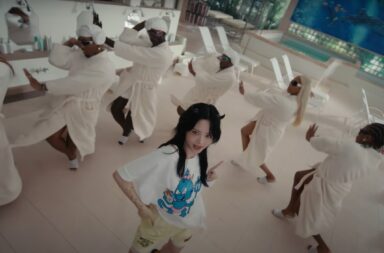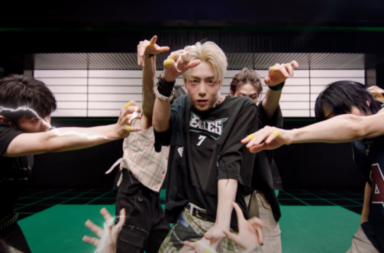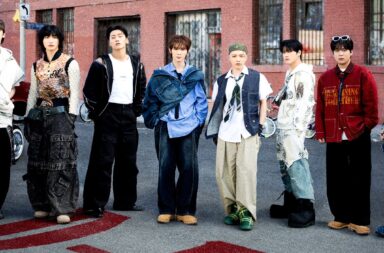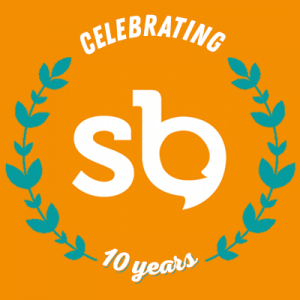 July 2018 is a special month here at Seoulbeats – it’s our tenth anniversary! From our small beginnings in July 2008, the site has grown and expanded as the reach of K-pop did as well. There have been numerous changes to Seoulbeats, but one thing remains unchanged: our commitment to provide a voice to our writers’ various opinions and takes on K-pop and K-pop related material. Thus, we believe that one of our core strengths is the numerous writers who have written and are writing for the site.
July 2018 is a special month here at Seoulbeats – it’s our tenth anniversary! From our small beginnings in July 2008, the site has grown and expanded as the reach of K-pop did as well. There have been numerous changes to Seoulbeats, but one thing remains unchanged: our commitment to provide a voice to our writers’ various opinions and takes on K-pop and K-pop related material. Thus, we believe that one of our core strengths is the numerous writers who have written and are writing for the site.
To kick off our month of celebrations, we bring the spotlight to our writers personal K-pop journey. We ask our writers a very simple question: how did you find Seoulbeats? How has being on Seoulbeats changed your perspective or the way you approach K-pop?
Camiele (Cy): I honestly found Seoulbeats by chance. They were doing an all-call for writers back in 2014 on Twitter. I was looking for more outlets to write about K-pop, and I hadn’t actually explored many options as far as outlets. I’d explored things like KpopStarz, but their interface was so bogged down with ads at the time, my computer didn’t like going there. Soompi was around, but I wasn’t excited about their editing. Articles were informative, but I’m an editor by trade, so it was too hard to really enjoy what I was reading. In general, it was just a (very reliable) news source, but there wasn’t much in the way of in-depth conversation from what I saw at the time. I won’t get into AKP, NB, and KB. Not worth it. So I thought I’d give Seoulbeats a shot. I read a few articles and was impressed with some of the insight. I hadn’t really seen K-pop websites that dug deeper than just the actual news side of it or beyond the pandering to public drama.
 I won’t say that being a writer changed my perspective on how I approach K-pop. I approach it the same way I always have: the same as any other genre. I appreciate it for what it is and am lucky enough to have broadened my scope beyond the idol groups. Though my outlook on K-pop (as far as the musical aspect) hasn’t changed, when I first started I was just happy to find a place where I could write more and deeper about something I really cared about. I was also able to look a bit deeper into Korean culture to see what made the engine run. It did open my eyes to what we don’t see and allowed me to become deeper invested in the culture beyond the music.
I won’t say that being a writer changed my perspective on how I approach K-pop. I approach it the same way I always have: the same as any other genre. I appreciate it for what it is and am lucky enough to have broadened my scope beyond the idol groups. Though my outlook on K-pop (as far as the musical aspect) hasn’t changed, when I first started I was just happy to find a place where I could write more and deeper about something I really cared about. I was also able to look a bit deeper into Korean culture to see what made the engine run. It did open my eyes to what we don’t see and allowed me to become deeper invested in the culture beyond the music.
Lorenza: I also found Seoulbeats by chance. I was at KCon with a friend and were on a panel that Lindsay was on. We hadn’t ever heard of Seoulbeats before, despite both of us being longtime fans of K-pop. Turned out Seoulbeats was looking for writers and we both applied! We both got accepted and the rest is history. I hadn’t looked into writing about K-pop before and the discovery that there was a place for thoughtful discussion really appealed to me.
Writing for Seoulbeats helped me develop a more “professional” tone to use rather than the frankly casual one I frequently used before joining. Plus I’ve been able to use my experience here to boost my writing portfolio. I think the biggest thing that’s changed for me is like what Cy said: it broadened my scope beyond just the idol groups and let me delve deeper into Korean culture. That’s something that I love the most about writing for Seoulbeats.
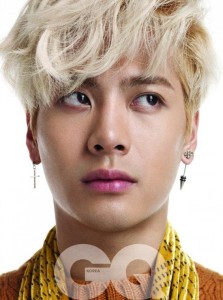 Celina: I don’t know if I had unknowingly “liked” Seoulbeats on Facebook, if it was recommended to me by Facebook, or if someone else “liked” it but an article about Jackson‘s “Papillon” showed up on my feed. I was actually pretty disappointed by that single and felt like everyone was blindly giving it praise. I was impressed that there was a site that didn’t pander to the fans, and so I began to check Seoulbeat’s articles daily.
Celina: I don’t know if I had unknowingly “liked” Seoulbeats on Facebook, if it was recommended to me by Facebook, or if someone else “liked” it but an article about Jackson‘s “Papillon” showed up on my feed. I was actually pretty disappointed by that single and felt like everyone was blindly giving it praise. I was impressed that there was a site that didn’t pander to the fans, and so I began to check Seoulbeat’s articles daily.
Previously, I had only done short and quick reviews on my Tumblr. I definitely look at and write about K-pop differently now. When originally I just wrote down my initial thoughts, now I’m looking through every detail and symbolism–dissecting every bit of a song. I think I’m also more honest and unafraid about how I feel about a song or album now. Additionally, when before I’d ignore K-pop scandals and news, now I’m more interested in looking at it from a different perspective.
Pat: I found Seoulbeats way back in 2009 or 2010 – I’m not exactly sure of the date. All I know is that it involved SNSD‘s “Tell Me Your Wish” Korean MV, and how I was looking for someone to explain just why I felt so uncomfortable watching it (I was young), to the point where I haven’t even watched the MV again until recently (and yep, still uncomfortable, now with 100% more context as to why!). However, I didn’t become a regular reader of Seoulbeats until 2012 and that was thanks to EXO‘s weirdly fantastical “Mama.” I found myself checking in regularly, due to the formula of me having more semester with my undergrad thesis already done and defended, a serious case of senioritis, and the college installing faster wifi, leading to me having Seoulbeats as part of my daily morning routine.
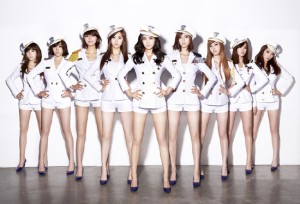 Due to Seoulbeats, I managed to look at pop culture more critically. When previously, I only looked at things at the superficial level, I now go beyond and look at further contexts and the like. I became a writer in 2013 and it’s due to Seoulbeats that I’ve become an exponentially better writer. Comparing my very first article with my latest not only shows these two progressions in writing and analysis of K-pop material but also how I’ve become more comfortable in voicing my opinions and arguing my arguments, all skills that would come in handy when I started grad school.
Due to Seoulbeats, I managed to look at pop culture more critically. When previously, I only looked at things at the superficial level, I now go beyond and look at further contexts and the like. I became a writer in 2013 and it’s due to Seoulbeats that I’ve become an exponentially better writer. Comparing my very first article with my latest not only shows these two progressions in writing and analysis of K-pop material but also how I’ve become more comfortable in voicing my opinions and arguing my arguments, all skills that would come in handy when I started grad school.
Lindsay: Like Patricia, I found Seoulbeats around 2010 when I first got into K-pop. Honestly, at the point, I was in the obsessive new fan stage and was looking for anything and everything I could get my hands on to delve deeper into the K-pop world (there were fewer resources then, amazing how much difference 8 years makes). Eventually, the rose-colored glasses of obsession faded slightly and I found that Seoulbeats was my best resource for deeper cultural analysis. I’ve said this on panels at KCON many times when introducing myself (thanks for the shout-out, Lorenza!), but I felt like applying to write for Seoulbeats was the best way for me personally to get involved in the fandom. I’m not an artist, I’m not a singer, the only dance I do is ballroom, but I am an academically inclined person and I had always been decent at writing papers — and as others have said, the rest is history!
I actually have to credit my work at Seoulbeats for my current career trajectory and success. If it weren’t for Seoulbeats I never would have had the confidence to apply to graduate school to study Korean media at a professional academic level, and it is my experience working here and presenting at KCON that was of interest to graduate school application committees. Unfortunately, I now have to pour all of my writing into Ph.D. papers and conference presentations, but I’m happy I can still be involved with Seoulbeat’s social media because truly the site has been my K-pop family and home since the beginning.
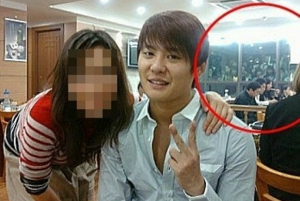 Madi: I was reminded of the existence of Seoulbeats back in 2015. Back then, I was super into launching my own platform into the Hallyu wave. My boyfriend mentioned to me that Seoulbeats was looking for writers. I applied, wrote, and here I am. Writing has never been my strong point, but being at Seoulbeats helped me to improve. From there, now I’m doing something I did when a couple of years into falling in love with K-pop: podcasting… although back then it was just being an online radio VJ.
Madi: I was reminded of the existence of Seoulbeats back in 2015. Back then, I was super into launching my own platform into the Hallyu wave. My boyfriend mentioned to me that Seoulbeats was looking for writers. I applied, wrote, and here I am. Writing has never been my strong point, but being at Seoulbeats helped me to improve. From there, now I’m doing something I did when a couple of years into falling in love with K-pop: podcasting… although back then it was just being an online radio VJ.
Seoulbeats definitely challenged me to think deeper and look beyond the surface of K-pop, among other things. I can’t say it changed my perspective… maybe forced me to be more aware of what goes on in the community. When I was in my first beginnings of K-pop, I was basically shunned and called a faker because a non-Caucasian or Asian fan “didn’t count” and I was “trying to be something I wasn’t” cause being an international fan of Korean music and culture was not a thing. So I left the community for a while and came back into 2 years later and kept my interests pretty much to myself. I guess I would call me a fan on the surface, just listening to music and that was it. So how idols were being treated, fan wars, sasaeng fans, etc. was never anything I was fully aware of.
But I’m glad I’m here because it’s comforting to be surrounded by like-minds and I can breathe a bit easier about being involved. I was scared honestly.. but the scope of who knows about Korean music has changed… so thankfully, everyone is great and awesome here. I’m glad to be part of this family.
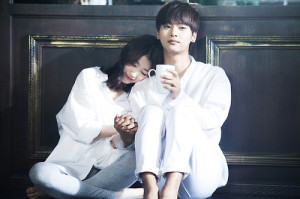
Qing: I’ve been following K-pop since 2007, but my attention to the scene tapered off during the first few years of university because I was just too busy to do more than check out songs and the occasional MV. My workload eventually eased up, and I became more involved in K-pop again.
The perspectives I was gaining from studying literature led me to search for deeper analyses of K-pop, and it was probably through Google that I came across my first Seoulbeats article. I don’t know if they were the first pieces I read, but Pat’s review of VIXX‘s “Eternity” MV published back in 2014, and her Music and Lyrics on VIXX, made an impression. After two years of being a reader, as I was waiting to enter grad school, I applied as a writer and was trained by none other than Pat (I didn’t realize the coincidence until I started thinking about this Roundtable).
Before I joined, I paid more attention to the delivery and performance aspects of K-pop. After I began writing about it, I saw more plainly than ever that K-pop is art. Yes, there are a ton of clichés, but it’s also incredibly diverse and meaningful. A lot of people see K-pop as “factory made”, but there are real people with values and ideas who are pouring their creative energy into making K-pop.
I’ve also become more self-reflexive in balancing my perspective, which is influenced by liberalism as a result of my literary education, with an understanding of the K-pop industry. Whenever I read articles by our writers or think about my own pieces, I remind myself that attention to context is key to avoiding a dogmatic imposition of Western ideas onto the scene.
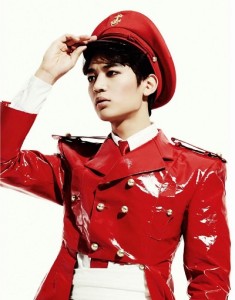
Gaya: Pretty much every K-pop-related website I frequent today I discovered through what I call The Great Minho Google Search of 2011. I was 15 pages deep into those results, people. Naturally, I ended up almost every article tagged “Shinee” on Seoulbeats (this was partially driven by exam-related procrastination; I wasn’t that obsessed with Minho). Having already been through the PR-friendly pabulum of other news sites and the blind devotion from the commenters, I was desperately in need of context — and found it in Seoulbeats. What kept me coming back to this site was Johnelle’s 5 Things, a precursor to our current Week in Review segment, also started by Johnelle. It was a way for me to keep up with what was going on in K-pop when I had no idea how to watch anything that wasn’t an MV uploaded to YouTube.
Not only have I learned so much about K-pop from Seoulbeats, I also learned how to channel my passion into productive pursuits and become truly active in online fandom (my Harry Potter days were rather passive). I learned how to make and edit podcasts, how to take the perfect screencap, critically evaluate sources and search deep to find the full story, how to survive live-tweeting all three Gayos each year (do it in bed, get as comfy as possible), and of course, I learned how to write. I still have a way to go, but the progress I’ve made so far has been remarkable to me. My approach to K-pop is definitely more clinical now, and I do tend to use it as the perfect training ground for honing my own skills in writing, researching, analyzing and teaching, but I still manage to have a lot of fun with everyone on the team. I will never get tired of how everyone starts flooding our communication channels with their thoughts on the latest K-pop release or news, even if I’m away during the live exchanges and eventually arrive at a mountain of messages to sift through, it’s definitely nice to have this community with which to share our thoughts.
Chelsea: I found Seoulbeats by way of Ree’s very controversial article about Key‘s singing that was making rounds on Tumblr. Though I disagreed with the article, I was curious about the site because up until then, all the K-pop news I’d read was positive and lacking the critique that I — a media studies student at the time — craved. From there, I read my way through most of Seoulbeat’s articles covering drama tropes, controversial topics like dating and marriage, and of course the MV reviews. Dana became a source of inspiration with her very informed articles and willingness to work through complex topics. I loved the content and editorial nature of Seoulbeats, and it became my go-to source whenever big news broke or a new MV was released — even if there was a slight delay compared to other sites. When I saw the recruiting post back in 2014, I knew I had to give it a try.

Now, after writing and editing and editing for Seoulbeats for nearly four years, it’s become a staple of my K-pop life. It’s not only made me more critical of the media I consume, and the fandom culture I take part in, but it’s also given me more confidence in voicing my opinions. I’ll always work on being a better writer, but I know Soeulbeats is to thank for most of the improvement I’ve made these past few years. I’ve learned about groups I probably never would have looked into before, and surprised even myself with some of the articles I’ve written. It’s wonderful to have a team that is just as invested as I am, and who inspire each other to dig deeper. At times, writing for Seoulbeats does make it a little difficult to blindly enjoy K-pop, but I don’t think I’d have it any other way.
Lo: I found Seoulbeats in very early 2013. That was right when my interest in K-pop shifted from “passing” to “passionate”. I’d been into K-dramas for years, and was– and still am– a devotee of Dramabeans, whose content is thorough and critically insightful. Thus, the realization that most K-pop websites were mostly short fluff pieces, with no real reviews that could give me an insight as to whether or not I’d be interested in an album was very disappointing. Then, somehow, I found Ree’s review of Wonder World and it was everything I’d been missing. It covered the entire album! It talked about musical styles and influences! I had an idea of if I’d be interested in this work! Next thing I knew, I went down a rabbit hole of suggested articles, and have been a fan ever since. Applying to the recruiting post in 2014 was one of the most terrifying experiences of my life– I was coming off a major depressive episode and my self-esteem was at an all-time low– but easily one of the most rewarding.
How about you, readers? How did you find Seoulbeats? Share with us below!
(Images via Lorenza, SM Entertainment, Jellyfish Entertainment, JYP Entertainment, GQ, Mnet, CJE&M)
